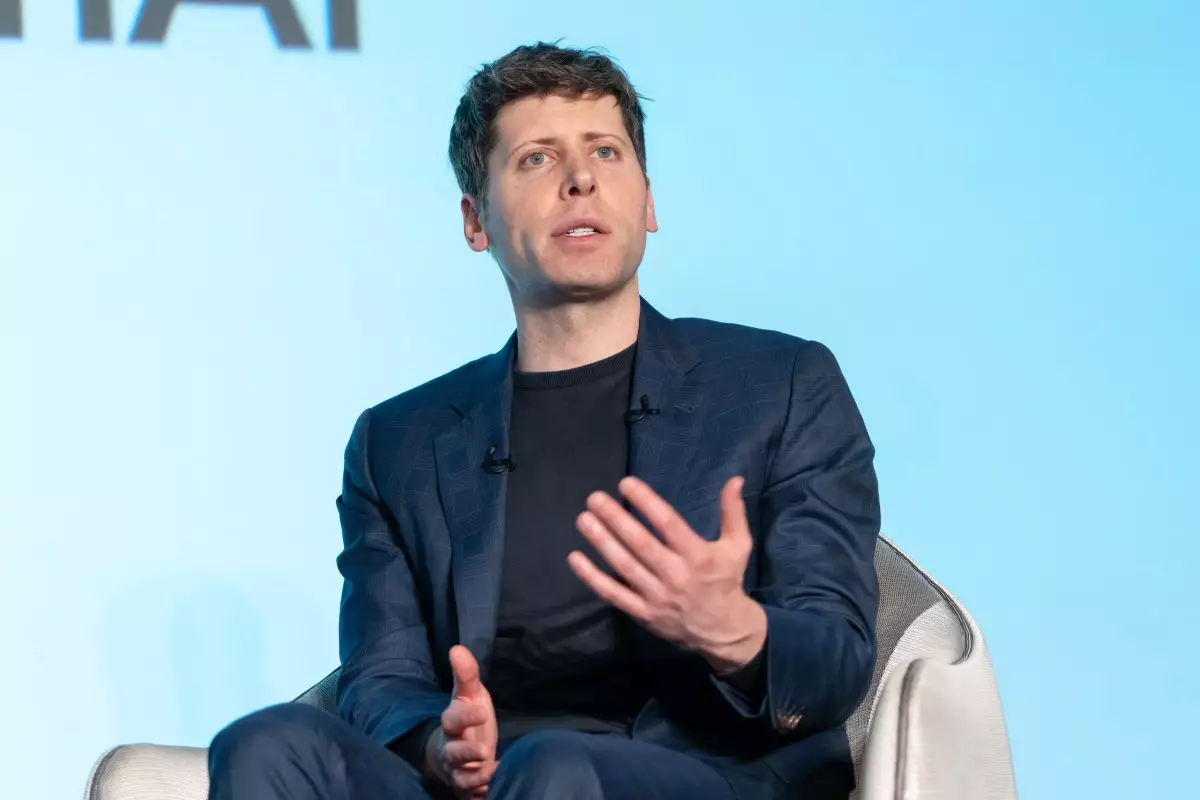In a landscape increasingly dominated by artificial intelligence, distinguishing between human interaction and machine operation is becoming more crucial than ever. Tools for Humanity, a startup co-founded by the visionary Sam Altman of OpenAI, recently introduced the Orb Mini device, aimed at bridging this widening gap. Unveiled at the “At Last” event in San Francisco, this handheld gadget is set to redefine how we validate our humanity in a digital realm brimming with AI agents and algorithms. The Orb Mini epitomizes a significant leap toward ensuring genuine human connections in an era where AI is ubiquitous.
Redefining Technology with Purpose
Rich Heley, Chief Device Officer at Tools for Humanity and a former Apple director, spearheaded the design of this revolutionary device, which bears a striking resemblance to a smartphone. Featuring two large sensors designed to scan users’ irises, the Orb Mini serves as a physical solution to a profound digital dilemma: establishing a unique identification mechanism that confirms one’s human status. This confluence of hardware and purpose reflects a growing trend in tech—where machines are not just tools for convenience but are engineered for societal utility.
The Orb Mini has its roots in World, a web3 initiative that was originally branded as Worldcoin. In a world where lines blur between human and AI, the project’s mission is crystal clear: to create a seamless means of human verification on the blockchain. This device plays a pivotal role in World’s strategy to engage millions in a digital verification process, marking a significant step toward increasing security and trust in online interactions.
Design Philosophy and Future Directions
While its main function revolves around verification rather than traditional smartphone capabilities like calling and messaging, the Orb Mini still raises questions concerning future features and applications. Tools for Humanity indicated that there’s an open-ended ambition to evolve the device—potentially transforming it into a mobile point-of-sale setup or extending its sensor technology to other manufacturers. This breadth of vision reflects a forward-thinking ethos that prioritizes adaptability and user needs in an ever-changing technological landscape.
The design inputs from experts like Thomas Meyerhoff, a former Apple designer, hint at an aesthetic consideration often overlooked in utility devices. It’s not just about function; it’s about creating a user experience that feels both intuitive and trustworthy, thereby fostering a sense of safety in relying on such technology.
Expanding Horizons with the World Network
In a parallel move, Tools for Humanity is launching its World Network across the United States, earmarking cities such as Austin, Los Angeles, and Miami for storefronts where individuals can engage with the service. This initiative is indicative of a broader strategy to cement the presence of World in North America, moving beyond its established base in Latin and South America, as well as Asia. With the claim of 26 million sign-ups globally, of which 12 million have been verified, the project is on a notable trajectory that encourages widespread adoption.
These physical locations serve as vital touchpoints for the public to interact with the Orb devices and facilitate the eyeball scanning process, igniting curiosity and easing apprehensions about biometric data collection. As retailers increasingly consider the intersection of technology and customer experience, such innovative initiatives could redefine conventional consumer interactions.
The Ethical Conundrum of Digital Verification
Yet, amid the excitement, significant ethical questions loom large. The prospect of biometric verification opens the door to discussions about privacy, consent, and the potential for misuse. Will users feel secure in providing their biometric data to a company, even one led by respected figures like Altman? The blanket promise of protection may not suffice; transparency in data handling and clear user rights must be part of the conversation moving forward.
As the Orb Mini carves a niche in the realm of human verification, it becomes clear that our relationship with tech is evolving. Whether it will eventually converge with other AI projects spearheaded by Altman’s OpenAI remains uncertain, but one thing is clear: the future of human verification holds the potential for both innovation and concern. This intersection will certainly define not only how we interact with technology but also how we perceive our very identity in the digital age.

